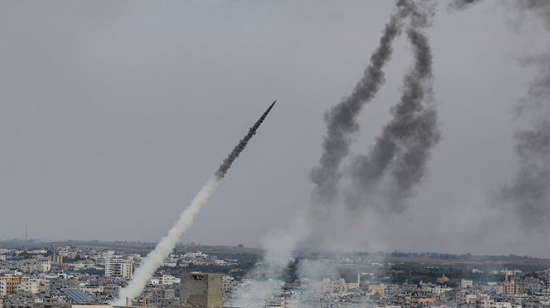Terror group Hezbollah has been attacking Israel for months. Hundreds and hundreds of missiles have been launched into Israel and Israeli citizens have been killed. They are backed by Iran and now Turkey, as Israel moves their troops into position in order to be able to invade Lebanon.
The Permanent Mission of Iran to the United Nations has issued a warning that Hezbollah might retaliate against Israel’s assassination of Fuad Shukr, one of its top commanders, in Beirut by targeting broader and deeper areas within Israel, including both civilian and military sites.
The Permanent Mission of the Islamic Republic of Iran to the United Nations has Warned that Hezbollah’s Retaliation for Israel’s recent Assassination of Hezbollah Senior Commander and Chief of Staff, Fuad Shukr, may result in “Broader and Deeper” Attacks then we have previously… pic.twitter.com/mWJXGcg64l
— OSINTdefender (@sentdefender) August 2, 2024
In an exclusive interview with CBS News, a spokesperson for the mission explained that Hezbollah’s response to the targeted strike, which also resulted in the deaths of at least five civilians and injured several others, could escalate significantly. “Hezbollah and Israel have maintained an unwritten understanding to limit their military operations primarily to border areas and military targets. However, the recent Israeli attack on Dahieh, a residential area in Beirut, represents a departure from these boundaries. We expect Hezbollah to respond by targeting broader and deeper locations, not just military targets,” the spokesperson stated.
When asked for specifics, the Iranian Mission to the U.N. confirmed that these targets would be within Israel’s territory.
Hezbollah leader Hassan Nasrallah stated on Thursday that Israel had crossed “red lines,” marking a new phase in the conflict. He promised a response, whether it would be gradual or simultaneous. Shukr was known to be a close advisor to Nasrallah.
Israel’s strike in Beirut was in retaliation for a rocket attack last Saturday, attributed to Hezbollah, which killed 12 people, mostly children, in the town of Majdal Shams in the Israeli-controlled Golan Heights. In response to rising regional tensions, the Pentagon announced the deployment of an additional fighter squadron to the Middle East and the movement of additional cruisers and destroyers to protect Israel and U.S. forces. The USS Abraham Lincoln aircraft carrier will replace the USS Theodore Roosevelt in the region.
🇱🇧-🇮🇱
Permanent Mission of #Iran to the UN:“#Hezbollah‘s response to Israel’s assassination of Fuad Shukr, in Lebanon’s capital city Beirut may result in the militant group attacking much “broader and deeper” civilian as well as military targets inside #Israel” pic.twitter.com/45TSTiRxey
— ConflictLive 💬 (@conflict_live) August 3, 2024
Hezbollah, based in Lebanon and allied with Iran, participated in a significant retaliatory attack on April 13, launching over 300 drones and missiles towards Israel from Iranian territory and allied proxies in Syria, Iraq, and Yemen. This was in response to an Israeli strike on Iran’s consulate in Damascus on April 1, which killed several Iranian commanders. U.S. military forces assisted Israel in intercepting most of the projectiles, with only a few reaching Israeli territory, causing minimal damage.
It remains uncertain whether Hezbollah will coordinate with Iran and its regional allies for another simultaneous attack on Israel or act independently. Hezbollah is believed to have an arsenal of 150,000 missiles and rockets, including long-range weapons capable of overwhelming Israel’s Iron Dome defense system and striking deep within Israeli territory.
Israel, already engaged in conflict with Hamas in Gaza, is concerned about sustaining a two-front war in the south and north. An Israeli official told CBS News that Israel is bracing for a “more aggressive” retaliation that might extend beyond its borders to target Israeli assets abroad. When asked about Iran’s potential response, another Israeli official remarked, “That’s for Iran to decide.”
Just IN-Permanent Mission of Iran to the United Nations:
– Hezbollah will choose broader and deeper targets after the Israeli strike in Beirut
– Hezbollah’s response may lead to attacking broader and deeper civilian and military targets inside “Israel” pic.twitter.com/vGfPCNenFt
— SatireSphere (@SatireSphere25) August 3, 2024
In related developments, Hamas’s top political leader, Ismail Haniyeh, was killed in Tehran on Wednesday by an explosion. A U.S. official confirmed to CBS News that Israel was behind the assassination, although Israel has not publicly acknowledged it. Additionally, Israel announced the recent killing of Mohammad Deif, the leader of Hamas’s military wing and mastermind of the October 7 attack, after multiple assassination attempts.
One thing remains almost certain. There will be no peace in the Middle East until we have the Democrats out of the White House, as they are the war party and in the Middle East, they are supporting all sides in order to keep the conflict going, and deaths mounting. President Trump has pledged will fix it all in 2025.
Major Points:
- Iran’s U.N. mission warns that Hezbollah may target broader and deeper areas within Israel, including civilian and military sites, in response to Israel’s assassination of Fuad Shukr in Beirut.
- Hezbollah leader Hassan Nasrallah stated that Israel’s attack on a residential area in Beirut crossed “red lines,” marking a new phase in the conflict, and indicated that Hezbollah’s response could be widespread or simultaneous.
- In light of escalating regional tensions, the Pentagon is deploying additional military assets, including a fighter squadron and naval vessels, to the Middle East to protect Israel and U.S. forces.
- Hezbollah has an estimated 150,000 missiles and rockets, some with long ranges that could potentially overwhelm Israel’s Iron Dome defense system and hit deep within Israeli territory.
- Israel’s recent targeted killings of key figures allied with Iran, including Hamas’s top leader Ismail Haniyeh and Hamas military leader Mohammad Deif, have heightened concerns of a larger regional conflict. These terrorists met their fate and Israel did well in getting to them.
TL Holcomb – Reprinted with permission of Whatfinger News



